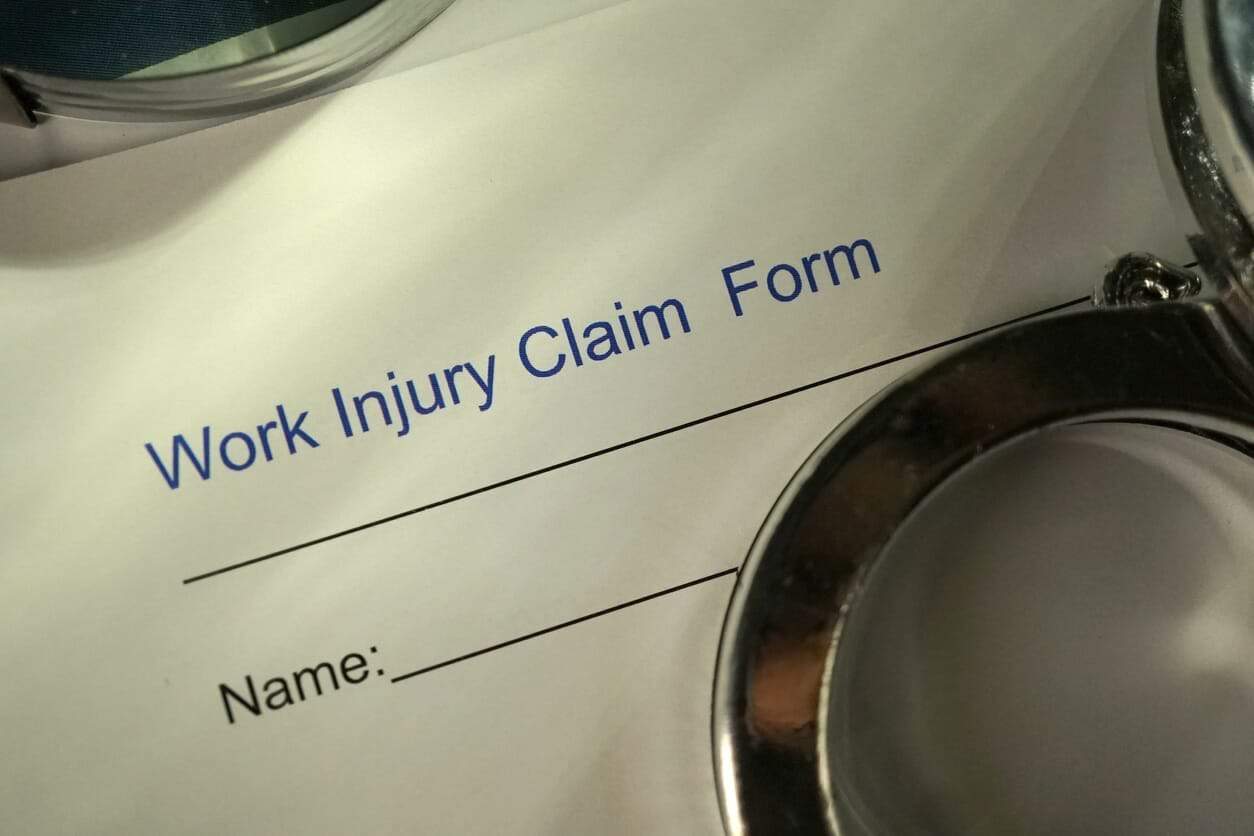The Virginia Workers’ Compensation Act provides payment for on-the-job injuries that meet certain requirements. Under the law, an injured worker must take specific actions after a work accident to receive benefits. If the statutory criteria are not met, or if the injured employee does not take the necessary actions, the employer’s insurance company may deny a claim. In this discussion, our Richmond workers’ compensation lawyers at Renfro & Renfro explain some of the common reasons for denial of a Virginia workers’ compensation claim.
Top Reasons Workers’ Compensation Claims Get Denied
Failure to Comply with Filing Requirements
The workers’ compensation claim process has multiple filing deadlines that an injured worker must meet to receive benefits. There are deadlines for providing notice to the employer of the accident and for filing a claim with the Virginia Workers’ Compensation Commission. If an injured worker misses any of the deadlines, the insurance company probably will deny the claim, with limited exceptions.
An injured worker has 30 days to notify their employer about the work accident and two years to file a claim with the Virginia Workers’ Compensation Commission. You should immediately notify your employer about your accident. Delays in reporting an accident may result in denial of your claim by the insurance company, even if the accident is reported within the 30 days provided by statute.
Meeting workers’ comp deadlines after a work accident is within your control. Taking the necessary steps as soon as possible is the best way to avoid denial of a claim on this basis. If you are unsure of what you need to do, an experienced workers’ compensation lawyer can help you meet the requirements of the law and receive the benefits provided by the statute.
Failure to Seek Medical Treatment or Use an Approved Medical Provider
The workers’ compensation law requires an injured employee to get medical care from a list of providers approved by the employer and the insurance company. If the worker fails to seek medical care at all, does not use an approved provider, or refuses medical treatment, the insurance company may deny the claim.
If your employer or the insurance company did not provide you a list of doctors to choose from you can choose your own doctor to treat you for your work injury. It is important to make sure you tell the doctor at your appointment that your injury occurred at work and describe the accident to the doctor in detail.
Medical records relating to treatment are an essential part of establishing the entitlement to workers’ compensation benefits. Your records need to show that you received a work injury and demonstrate the nature of the injury. If you do not have medical records that document the injury, you delay getting treatment, or you do not get treatment at all, the insurer is likely to maintain that there is no injury or that the injury was not the result of a work accident and deny your claim.
Issues Relating to the Cause of the Injury
Insurance company denial of a workers’ compensation claim often relates to a dispute over the cause of the worker’s injury. A discrepancy between the accident report and medical records may give rise to factual issues about the accident. In some cases, your medical records may not support your version of events or your claim of a work injury.
Workers’ compensation covers only work accidents. If there is evidence that your injury did not occur at work, the Commission may deny your claim for workers’ compensation benefits. Consistently documenting a work accident in the accident report and in medical records is an essential part of a workers’ compensation claim. Always be sure to tell medical providers that you are seeking treatment for a work injury and describe how the accident occurred.
Lack of Witnesses to the Accident
Some insurance companies deny a claim if there were no witnesses to a work accident. If you have an accident when there are no other employees present, it’s important to notify your coworkers, supervisor, and employer as soon as possible. Delaying notification may make it more difficult to establish your entitlement to benefits.
Pre-Existing Injury or Condition
If a work injury affects a previous injury or existing condition, the insurance company may deny a claim on that basis. Fortunately, you can still recover benefits in these circumstances under Virginia workers’ compensation law. Assistance from a knowledgeable workers’ compensation lawyer is highly recommended if you have a work accident involving a pre-existing injury or condition.
Evidence of Drugs or Alcohol
An employer may request a drug or alcohol test when you seek medical treatment for a work injury. The presence of drugs or alcohol at the time of an accident likely will result in denial of your claim. Although the employer must demonstrate that the drugs or alcohol at least partially caused the accident, evidence of drugs or alcohol in a worker’s system at the time of an accident presents significant problems in a workers’ compensation claim.
Accident Claim Following Termination or Reprimand
An insurance company will be suspicious of any workplace accident claim filed after termination or reprimand of the employee. The insurer will investigate the claim in detail and may deny it, arguing that the claim was filed for revenge or out of spite.
Refusal to Make a Statement or Provide Authorization
An insurance company may ask the injured worker to complete forms or provide a written or verbal statement. They also may request blanket authorization for release of medical records. These types of requests may be an effort by the insurer to avoid liability.
You should consult with a Virginia workers’ compensation attorney before signing any documents forms or making any written or verbal statements. You also should always consult with an attorney before giving a recorded statement over the phone. If you refuse any such requests, the company may deny your claim. While cooperating with the insurer and employer regarding a workers’ compensation claim is necessary, you need to protect your rights and interests throughout the claim process.
If your employer requires you to fill out an accident report, you should be as detailed as possible when describing the accident and how your injury occurred. If you fail to put all the details about your accident in the accident report, the insurance company can later use your written statement to try to show that you are not being honest about how your accident occurred.
What To Do After Denial of a Workers’ Compensation Claim
If you received a workplace injury and the insurance company denies your claim for workers’ compensation benefits, you need to file a Claim for Benefits with the Virginia Workers’ Compensation Commission to contest the insurance company’s denial.
You should contact an experienced Virginia workers’ compensation lawyer as soon as you receive a denial, regardless of what reason the insurance company provides as the reason for denying the claim. Your lawyer can evaluate the denial and advise you of the options you have for proceeding.
Schedule a Free Consultation with Our Virginia Workers’ Compensation Attorneys
If you received an injury at work and do not already have legal representation, our experienced Virginia workers’ compensation attorneys at Renfro & Renfro are here to help. We assist injured workers with every step of the claim process, including analysis of the best options for proceeding after denial of a claim. We welcome you to contact us for a free consultation.






